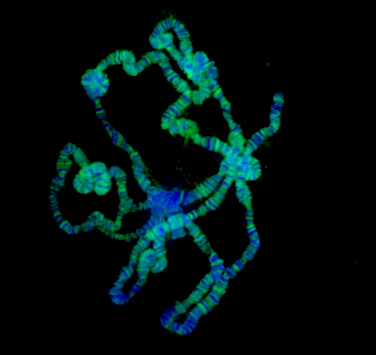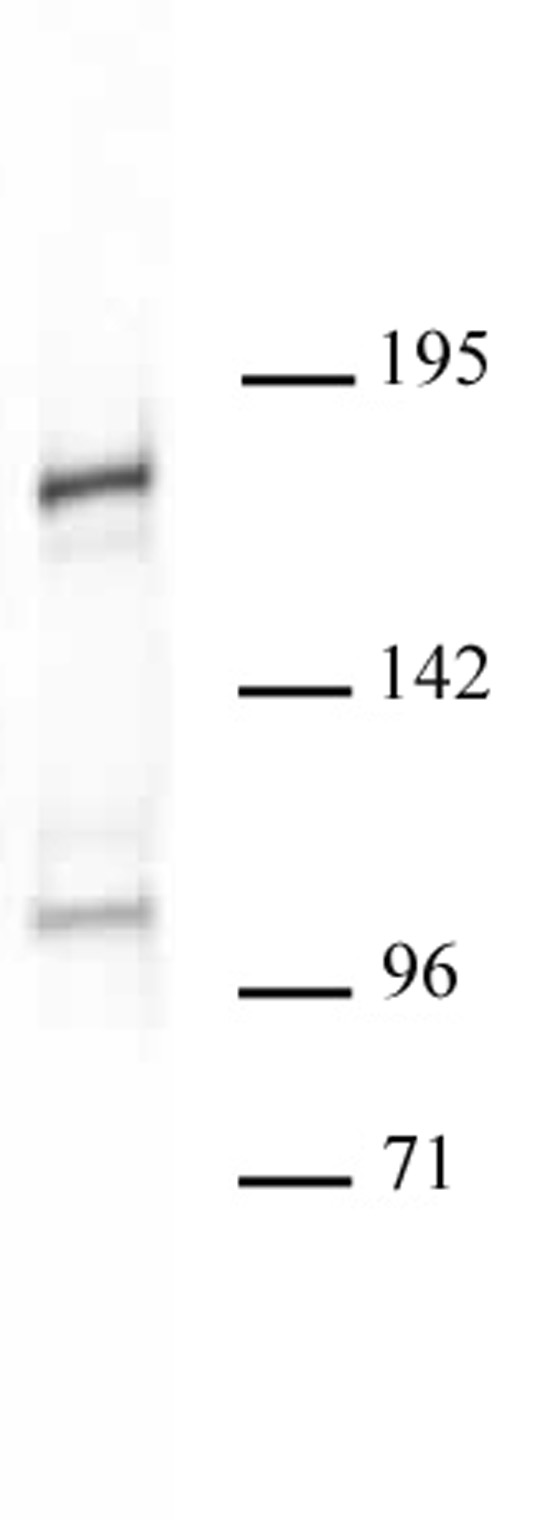Acf1 antibody (pAb)
Host / Isotype
Rabbit / IgG
Reactivity
Drosophila
Applications
ICC, IF, WB
Cat No : 39721,39722 39721
Synonyms
Validation Data Gallery
Product Information
| Tested Applications |
ICC, IF, WB
Applications Validated by Active Motif: ICC/IF: 1:500 - 1:1,000 dilution WB: 1:500 - 1:1,000 dilution The addition of 0.05% Tween 20 in the blocking buffer and primary antibody incubation buffer is recommended to aid in detection by Western blot. Individual optimization may be required. |
| Tested Reactivity | Drosophila |
| Host / Isotype | Rabbit / IgG |
| Class | Polyclonal |
| Type | Antibody |
| Immunogen | This Acf1 antibody was raised against recombinant C-terminal fragment of Acf1 from Drosophila melanogaster. |
| Full Name | Acf1 antibody (pAb) |
| Synonyms | Acf1, ATP-utilizing chromatin assembly and remodeling factor, ATP-dependent, nucleosome arrays, CHRAC (chromatin accessibility complex), repressive heterochromatin, sample |
| Molecular weight | 185 kDa |
| GenBank accession number | NP_536734 |
| RRID | AB_2793321 |
| Purification Method | Affinity Purified |
| Buffer | PBS containing 0.1% sodium azide, 0.2 mg/ml BSA and 35% glycerol. Sodium azide is highly toxic. |
| Storage | Some products may be shipped at room temperature. This will not affect their stability or performance. Avoid repeated freeze/thaw cycles by aliquoting items into single-use fractions for storage at -20°C for up to 2 years. Keep all reagents on ice when not in storage. |
Background Information
Drosophila Acf1 is a component of ACF, the ATP-utilizing chromatin assembly and remodeling factor protein complex. ACF catalyzes the ATP-dependent assembly of periodic nucleosome arrays in vitro. The catalytic subunit of ACF is the ISWI ATP-dependant chromatin remodeling protein. ACF is related to CHRAC (Chromatin Accessibility Complex), which also contains Acf1 and ISWI. ACF is involved in the establishment and possibly maintenance of silenced heterochromatic domains in the genome, both at pericentric heterochromatin and at genes repressed by the Polycomb complex.


